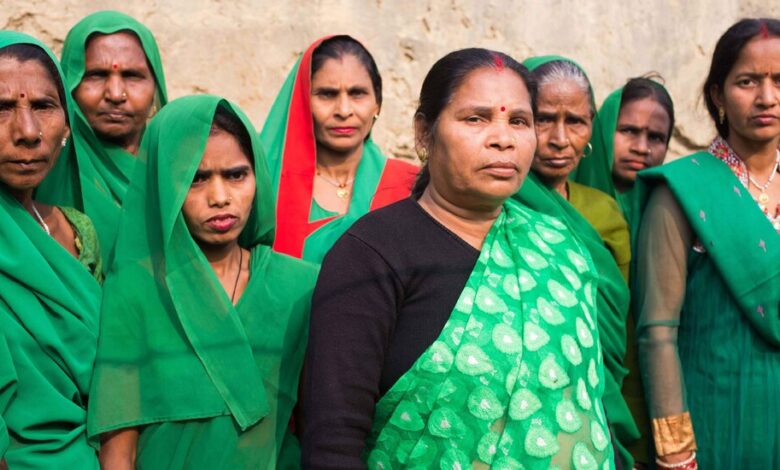Book Review: ‘The Furies,’ by Elizabeth Flock

Her “Green Gang” vows to “take on men, particularly the high caste, who did poor women wrong” and over the years it attracts more than 1,000 members, turning “girls who were as docile as cows into women headstrong as bulls.” But Dahariya is not above the same violent and humiliating tactics she and other women have faced for years. She punishes a corrupt engineer thought to be overcharging customers for electricity by dressing him in a sari petticoat, smearing red lipstick on his mouth and putting bangles on his wrists. At one point, she and her gang members beat a 17-year-old girl for having an affair, and force her to marry a stranger as punishment — as “a lesson to other girls.”
By the time we get to Flock’s section on Zibo, she is testing the limits of our empathy. Here, violence is undertaken not in self-defense but rather in the service of a political ideal. In 2013, when she was 17, Zibo joined the Women’s Protection Units in northern Syria, thrilled to help defend her Kurdish homeland. She describes her first kill, of an ISIS fighter, as “so joyful,” and becomes known for her ululations — cries more commonly uttered at wedding celebrations — during airstrikes and ambushes. Zibo and her fellow women-in-arms dream of creating in Rojava an autonomous state modeled on feminist principles. The aim, a commander tells Flock, is not just for women to hold a gun, “but to be aware” of their rights. Eventually, however, for many Syrians in the region, battered by years of war and facing an economic crisis, “the promises of a democratic, egalitarian and feminist revolution began to seem foolish when they did not have any bread.”
With each woman’s story in “The Furies,” we journey farther afield, from a kitchen in small-town Alabama to villages, refugee camps and training bases in Syria. Flock’s scope is ambitious, but her subjects’ narratives sit uneasily together, and key observations are sometimes glossed over quickly. Flock suggests that Rojava is “likely the best place in the Middle East to be a woman. That is, unless a person is queer.” Yet this claim is left unexplored, even though Zibo develops a deep, seemingly romantic bond with one of her commanders.
At the same time, the juxtapositions in “The Furies” provoke thought. We tend to see violent women as deviants, but as Flock recounts the stories of Smith, Dahariya and Zibo, their longings and indulgences, their fears, motivations and faults, she shows how mistaken this notion is. The violence in her book is committed by women who are in many ways perfectly ordinary, and though we may not agree that the sum of their actions “added up to something worthy setting events into motion that very well may change the world after them,” Flock has done a service by portraying her subjects’ human complexity.
THE FURIES: Women, Vengeance, and Justice | By Elizabeth Flock | Harper | 293 pp. | $32





